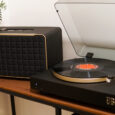I have written about the sugar tax in a previous article and how it will affect minimum wage workers the most. In case you haven’t heard of the sugar tax – also known as the Sugar-Sweetened Beverage Tax (SSB Tax) – yet, it basically aims to impose a 10-peso per liter volume increase for beverages that contain purely locally-produced sugar and a 20-peso per liter volume increase for all other sweeteners. (Read the complete bill here.) While this might not sound like a lot to some of you, a lot of people who earn minimum wage already consider this a big chunk of their livelihood – a chunk that they should not have to spend on what was once an affordable everyday commodity.
One of the reasons why the government wants to impose the sugar tax is because they claim to want to curb obesity and diabetes. However, while both obesity and diabetes are definitely major concerns the world over (there is no doubt about that), under-nutrition among Filipinos remains to be a much bigger problem with much heavier health consequences, including diabetes and obesity. YES! You read that right. Prolonged/long-term under-nutrition can lead to insulin resistance (that may lead to diabetes) and increased susceptibility to fat accumulation. If anything, malnutrition proves to be a much bigger problem in our country and is the real issue that should be addressed.
According to statistics, 28 million Filipinos are under-nourished. An FNRI study also shows that nearly 7 out of 10 Filipino households do not meet their daily caloric intake. This statistical fact directly correlates to another bothering truth that almost 70% of Filipino households are still FOOD INSECURE.
Aside from that, there is no local study that directly correlates sweetened drinks as direct causative factors to diabetes or obesity. Scientifically speaking, excessive caloric intake has a much stronger direct impact on the causation of diabetes and obesity. A more active lifestyle that helps create a balance in caloric intake and output is more important to promote that taxation.
The issue of being obese and overweight is also concentrated in the higher income class, whereas the sugar tax will mostly affect those in the lower income classes. As shown by the 8th National Nutrition Survey, 80% of beverages is consumed by the lower income class – those who are the least affected by obesity and diabetes.
Yes, the sugar tax might control the amount of sugar that we consume on a daily basis, but it also has to be noted that sugar is a necessity in many food manufacturing activities because of its function in food science; thus, there is an acceptable amount per person per age of how much of it we can enjoy. According to the FNRI, the Philippine mean daily per capita of sugar and syrup consumption in 2013 was 12 grams, which is compliant with the new World Health Organization’s guideline recommending a consumption level of free sugars of less than 50 grams.
Generally speaking, sweetened beverages do not contribute so much in daily per capita intake based on food group categories; cereals, rice and other carbohydrates still comprise nearly 60% of daily intake of Filipinos. A Food and Nutrition Research Institute study shows that sugar and syrup comprise only 1.9% of a Filipino’s diet, while 42% comes from rice. According to a study by AC Nielsen, the Philippines’ per capita consumption of non-alcoholic ready-to-drink beverages is actually very low compared to other countries because of the smaller packages and the less frequent consumption of Filipinos.
As such, if we push an SSB tax, we might be missing a real and better way to prevent diabetes and obesity. The higher the prices of commodities and the more FOOD INSECURE Filipino household become, the more under-nutrition will persist (remember: the Philippines did not meet its millennium development goal of cutting malnutrition (under-nutrition) into half), and the more people may become predisposed to insulin resistance and body fat accumulation. If this excise tax is more important than promoting means to make people more active, Filipinos will not get any healthier.
Who would this sugar tax really help, then? Is there really a need for it? Please share your thoughts with us. We’d love to hear them.







